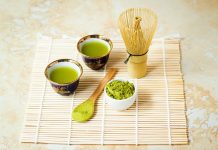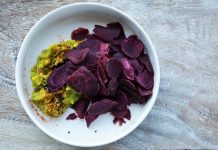
After a night of indulging in a few too many drinks, many people find themselves struggling with a hangover.
Hangovers are characterized by a variety of uncomfortable symptoms including headache, nausea, dizziness, and fatigue.
These symptoms are primarily caused by dehydration, changes in the immune system, glucose metabolism, and the toxic effects of alcohol on your system. Luckily, certain foods can help alleviate these symptoms, making your recovery smoother and faster.
Starting with the basics, hydration is key. Alcohol is a diuretic, which means it increases the production of urine and leads to the loss of fluids and electrolytes.
Before diving into what foods to eat, it’s important to emphasize that drinking water and replenishing electrolytes is crucial. Sports drinks, coconut water, or even just water with a pinch of salt and sugar can help restore these essential elements.
When it comes to solid foods, carbohydrates are your friend. Alcohol can cause your blood sugar to drop, which is one of the reasons for feeling shaky or moody the next day.
Foods like toast or crackers are mild on the stomach and can help boost your blood sugar levels back to normal.
A study published in the International Journal of Food Sciences and Nutrition suggests that a hearty breakfast can combat the effects of a hangover, helping to restore blood glucose levels and improve general feelings of wellbeing.
Eggs are another hangover helper, packed with amino acids like cysteine and taurine. Cysteine breaks down acetaldehyde, a toxic by-product of alcohol metabolism that contributes to hangover symptoms.
Taurine, meanwhile, has been shown to boost liver function and could help your body clear out toxins more effectively. A research study from the Annals of Internal Medicine noted that consuming protein-rich foods like eggs might help stabilize blood sugar levels and relieve nausea.
Bananas, avocados, and other potassium-rich foods can also be beneficial. Potassium is an electrolyte lost in significant quantities due to alcohol’s diuretic effect.
Replenishing potassium can help reduce symptoms like fatigue, nausea, and confusion. A slice of avocado on toast not only covers your carbohydrate needs but also helps in replenishing potassium.
Ginger tea is a soothing choice for calming your stomach. Known for its anti-nausea properties, ginger has been used in various cultures as a remedy for stomach upset.
A study in the Journal of Ethnopharmacology confirms that ginger effectively reduces nausea and vomiting. Drinking ginger tea or even chewing on fresh ginger can ease stomach discomfort and help with hangover symptoms.
Incorporating spices such as cumin, fennel, or turmeric can aid digestion and metabolism. These spices have been used in traditional medicine to stimulate bile production and cleanse the liver.
Turmeric, for example, contains curcumin, which is celebrated for its anti-inflammatory properties. A pinch of turmeric in a morning smoothie or egg dish can help combat the inflammatory effects of alcohol.
Finally, avoid greasy and heavy foods as they can exacerbate hangover symptoms. While it might be tempting to order a greasy breakfast, fatty foods can be hard on your digestive system. Instead, opt for lighter meals that provide nutrients and help in recovery.
Understanding which foods can aid in hangover recovery and why they help can make the aftermath of a night out less painful. By focusing on hydration, gentle carbohydrates, proteins, and potassium-rich foods, you can alleviate hangover symptoms and bounce back more quickly.
Remember, the best hangover cure is moderation and responsible drinking, but when needed, the right foods can make all the difference.
Follow us on Twitter for more articles about this topic.
Copyright © 2024 Scientific Diet. All rights reserved.








